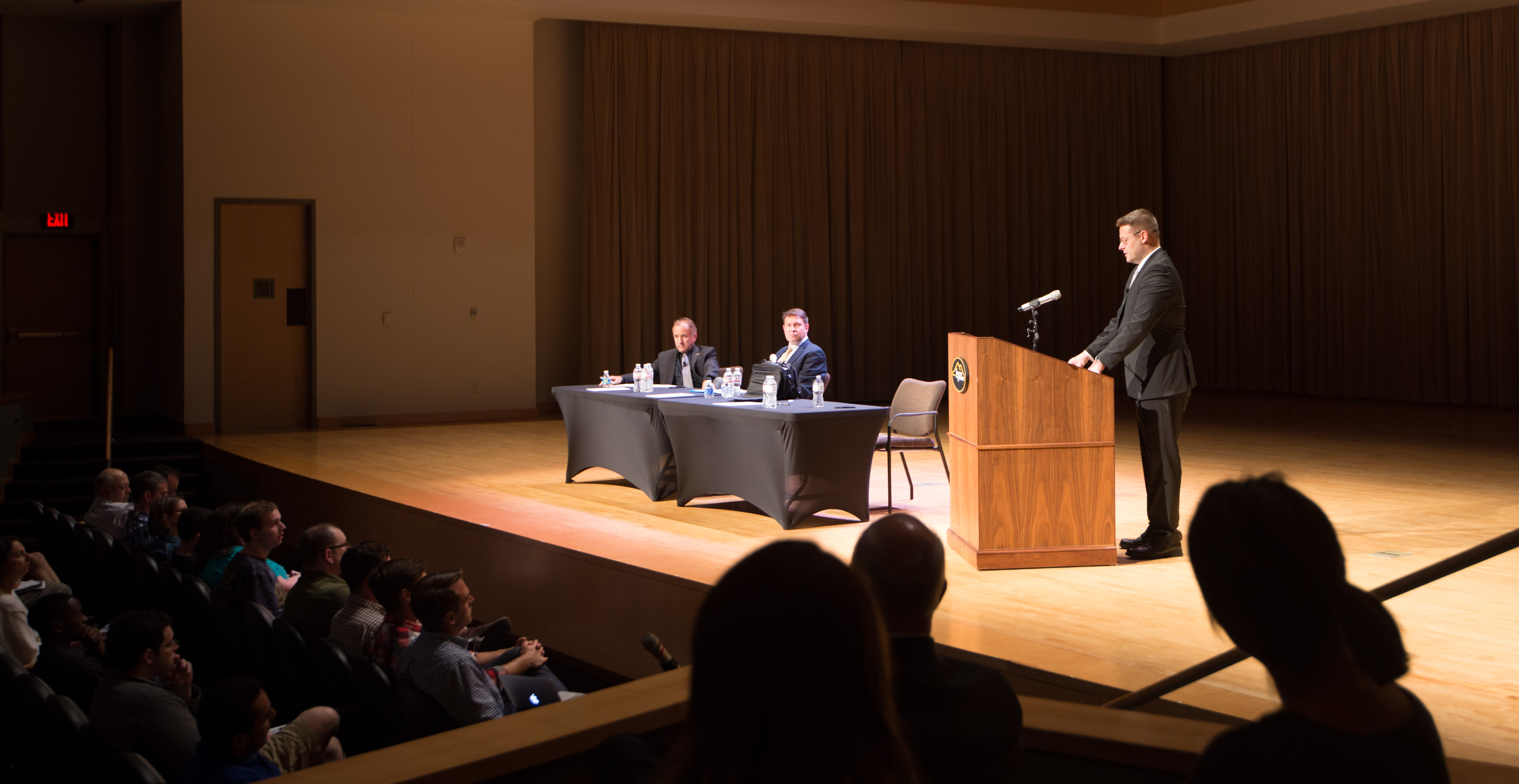If your world view was wrong, would you want to know?
Christian apologist Dr. David Wood and science author Dr. Michael Shermer met at the Bailey Performance Center at Kennesaw State University Oct. 10 to debate a fundamental question: does God exist? This debate certainly provided food for thought for curious and searching students that night.
Wood is a former atheist who argued for the existence of God, while Shermer, a former Christian, argued the opposite in last week’s debate.
One question that emerged from the debate was, “If there was evidence of God, how would we know that it is evidence of a god and not simply some advanced alien species?” This is a reference to Shermer’s Law, which states that “any sufficiently advanced extraterrestrial intelligence is indistinguishable from God.”
As pointed out by Shermer, the flaw in this reasoning is that, if from the very beginning the methodology is set up to come to the predetermined conclusion that God does not exist, then you will never be able to come to any conclusion that he does. If any abnormalities can be answered simply by “aliens,” then there’s no possible way to come to a belief in God. It is the equivalent of rigging an experiment to act in a desired manner in order to obtain the desired conclusion.
I sat down with Wood at a Ratio Christi event Oct. 12 and asked him a few questions regarding the formation of a world view.
What is the most important question many young people should ask themselves when first forming their world view?
“‘What do I believe and why do I believe it?’ Most individuals simply hear a lot of what others are saying around them and often take it at face value without asking if this source is reliable or true.”
What is the most important factor when it comes to validity in a world view?
“Sort of correspondence to reality. Not in the sense of ‘do I really exist?’ Descartes says ‘The fact that I’m examining anything at all shows that I exist… Mainly you are looking for coherence and how your view is testable with reality.”
If you had to describe a specific and quick proof for the existence of God what would it be?
“Deductive syllogisms meaning simple truths in the either or. Its not A therefore its B but its either A or B such as either the universe has gone back forever or it has a beginning. We know scientifically that the universe had a beginning therefore you can continue the string of thought with what was the cause[of the universe]? If you say there is no cause then once you say something doesn’t need a cause how would one do science? Its absurd to say the universe came into existence uncaused and therefore it had a cause.”
What topic did you not really get to hit on as much as you would’ve liked during your debate with Dr. Shermer?
”How Shermer’s method changed. He calls for proof but does not allow a method for which that proof can be provided. When it comes to morality though, proof for morality drops to any persons subjective feelings as thought they are an absolute.”
Sifting through Wood’s answers
So when it comes to forming a world view, individuals need to consider what they believe and why. They need to observe how consistent their view is and whether or not they are living consistently by it. Would an individual who finds inconsistency be open to changing their opinions based on new evidence provided?
If you are trying to argue that God does not exist, you cannot form an argument based on absolute evidence. The individual who does not believe in an absolute arbitor [God] yet cannot maintain an absolute argument. Such an argument is incoherent.
“If there’s something you want to believe in, you can allow any evidence to prove it to you,” Wood said. “And if there’s something you don’t want to believe in, you can become as skeptical as possible and no amount of evidence would convince you.”
Wood’s observation perfectly illustrates the modern method of thought when it comes to an existence of God. We believe what we want to based on how evidence fits our own tendencies.
I think we need to ask ourselves, are we really as open-minded as we believe ourselves to be?

